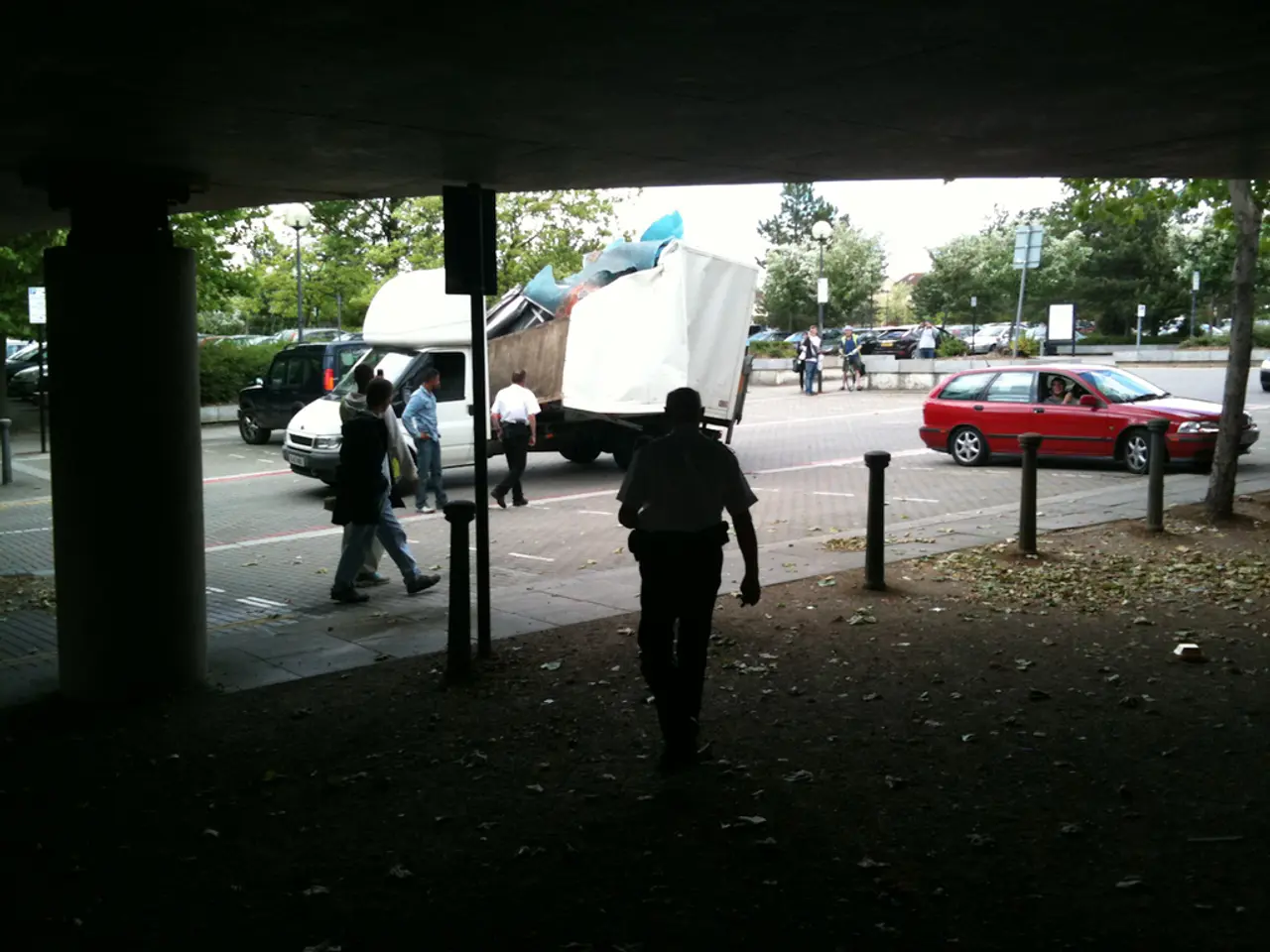Yandex assesses implications of prohibiting foreigners from taxi and delivery jobs
In the heart of Russia, the city of St. Petersburg has implemented a series of restrictions on the hiring of foreign workers, particularly in the taxi and delivery sectors. The latest decree, signed by Governor Alexander Beglov on August 11, bans the employment of foreigners as couriers, with the ban set to take effect on August 21.
The ban on foreigners working as couriers is not the first such restriction in the city. Earlier in August, a similar ban was imposed on foreign taxi drivers. The city authorities argue that these measures aim to improve service quality, safety, and create jobs for Russian citizens. However, critics and experts warn that these restrictions could lead to a significant increase in service costs and potential worker shortages.
The taxi sector, in particular, could be severely affected. Migrant workers, primarily from Uzbekistan and Tajikistan, had formed a significant portion of St. Petersburg's 26,000 taxi drivers[1][3]. The loss of these workers could exacerbate existing driver shortages, potentially leading to a 10-15% increase in taxi fares[2].
The delivery sector may experience a more modest impact, as foreign couriers represent a smaller fraction of the workforce. Nevertheless, the ban could still lead to more than a doubling of delivery costs[1][5].
Economic experts caution that the full ban on foreign taxi drivers could worsen the driver shortage, a problem that had previously led St. Petersburg to temporarily lift such restrictions due to economic impracticality and shortage concerns[2]. Despite this, the city reinstated the bans later in July 2025, reflecting a political decision amid rising xenophobia and a broader nationwide trend of restricting migrant labor since 2015[1][2].
In summary, the policy shift in St. Petersburg has raised concerns about higher service costs and potential worker shortages, particularly in the taxi sector. The city authorities claim these measures will benefit local employment and service standards. However, this situation highlights a tension between economic realities and political/social goals in St. Petersburg's labor market policy toward migrants[1][2][5].
References:
[1] The Moscow Times. (2025, August 12). St. Petersburg bans foreigners from working as taxi drivers and couriers. https://www.themoscowtimes.com/2025/08/12/st-petersburg-bans-foreigners-from-working-as-taxi-drivers-and-couriers-a73498
[2] RIA Novosti. (2025, July 20). St. Petersburg reinstates ban on foreign taxi drivers amid rising xenophobia. https://ria.ru/2025/07/20/s-peterburh-vosstavila-zapret-na-chuzhikh-voz-k-taksi-pod-voinstvom-xenofobii-745375788.html
[3] Kommersant. (2025, August 12). St. Petersburg bans foreigners from working as couriers. https://www.kommersant.ru/doc/4654405
[4] Interfax. (2025, August 12). St. Petersburg bans foreigners from working as couriers: no market disruption expected. https://www.interfax.ru/russia/725228
[5] The Bell. (2025, August 12). St. Petersburg's ban on foreign taxi drivers and couriers: what you need to know. https://thebell.io/st-peterburgs-ban-on-foreign-taxi-drivers-and-couriers-what-you-need-to-know/
The ban on foreigners working as couriers and taxi drivers, as per the recent decree in St. Petersburg, could significantly increase service costs and potentially lead to worker shortages, particularly in the taxi sector. This trend highlights a tension between economic realities and political/social goals in St. Petersburg's labor market policy toward migrants, with critics arguing that the reliance on technology, such as self-driving cars and drones for delivery services, could mitigate these issues and offer solutions for maintaining service quality and standards.




